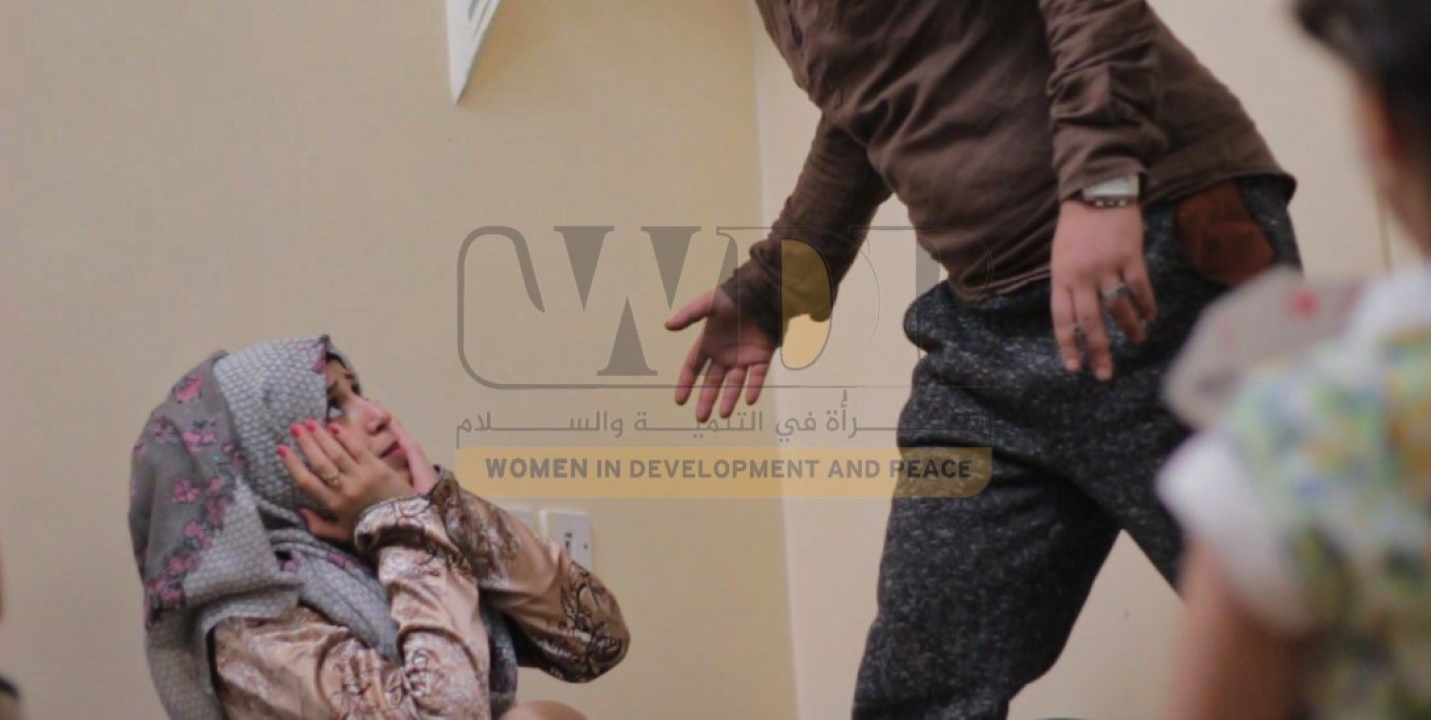Women in Development and Peace – Hanan Hussein
Cultural norms that undermine women’s freedom and dignity remain a dangerous intrusion into our society. In Yemen, gender-based violence is widespread, especially cultural violence that has seeped into heritage, traditions, and harmful fake practices. This type of violence women face presents many challenges as it is closely tied to social customs, traditions, and norms that diminish women’s status and marginalize their role in society.
The Culture of Shame
“It is shameful for a woman to work late,” was what Samia Ali (pseudonym) heard most during her work. This phrase created a huge distance between Samia and her right to work. Samia works selling incense and perfume in a corner of a shopping mall in Sana’a. Due to the distance of her home from work, she had to stay late sometimes to return home, which caused her many problems. Samia says: “The demeaning view of the working girl continued to haunt me with rumors to the point that my father forbade me from going to work, and more than that my brothers threatened to lock the doors on me.”
Samia had a child abandoned by his father at an early age, as he abandoned her, making her a divorced woman. This forced her to find work to provide a minimum living for her child, despite suffering for a long time from her father and brothers besieging and threatening her if she returned home late from work. She says: “When I refused to stop going to work, my father beat me and forcibly prevented me. The beating and abuse drove me to give up my only child by returning him to his father, and to flee to another governorate out of fear of the beatings and threats from my father and brothers.”
Today Samia lives homeless, as her father disowned her, according to her account, but she refused despair and started a new life further from the culture of shame, saying: “For the men of my family, a woman’s work is shameful, so I preferred to stay here in the student housing after enrolling to study, and I am still an outcast of the culture of shame that restricted me from my right to work and have a decent life, but I am optimistic.”
Folk Proverbs that Incite Violence
Yemeni culture is full of proverbs dominated by violence and incitement against women and diminishing them, most notably:
- “A disobedient son is better than ten obedient daughters,” clearly indicating that sons are more important than daughters.
- “A daughter is a disease and a son is a blessing,” likening having a daughter in the family to an illness.
- “A woman’s advice, even if right, brings four troubles,” diminishing the importance of a woman’s opinion and advice.
- “Marry off a daughter at eight on my guarantee,” calling for marrying off young girls to be rid of raising daughters.
- “A woman is a woman, even if she grows claws” (becomes fierce), diminishing a woman’s importance even if she is strong.
- “A home with a woman and lentil soup,” affirming a woman’s primary role is managing household affairs.

Wrong Borrowed Legacy
Sabah Al-Sharabi, head of the National Women’s Committee in Taiz, says: “The culture of shame contributes greatly to restricting women’s freedom to refuse violence against them; for example, many women who have been accused or blackmailed, even if unproven, are eliminated, killed or disowned by their families due to the culture of shame.”
She adds: “Unfortunately, many of these heritages stem from the wrong basis of upbringing by families. Despite the roles that Yemeni women still play in various fields of life, these heritages still promote the diminution of these roles.”
She continues: “Opinions and interpretations differ towards the abused woman, but she is mostly blamed without investigating the causes of violence. The woman bears the greatest burden under the pretext of shame and inability to communicate with the legal authorities that help her get rid of this violence.”
Regarding this, Fawzia Al-Muraisi, a member of the board of directors of Yemeni Women’s Union, says: “Folk heritages in Yemen differ according to governorates, as each region has a different belief, such as early marriage which has proverbs that incited it, and it is one of the most dangerous cultural heritages on Yemeni girls. As well as the culture of shame, rigid customs, and traditions that besieged the Yemeni girl and cornered her in a narrow corner that made her suffer from not fairly obtaining her rights, such as working in various fields.”
Many experts and researchers believe that cultural beliefs and folk heritages are among the major obstacles for Yemeni women to obtain their rights fairly. These heritages include social heritages such as the derogatory view of women who are evaluated based on their outward appearance, and the culture of shame and disgrace used to control them, tribal heritages such as male control over women in all stages of her life, depriving her of education and participation in public life, imposing obsolete customs and traditions that marginalize her role, and heritages from wrong interpretations of religious texts that are used to justify the injustice against women by linking her hijab to her dignity and honor, limiting her freedom.
From the Law’s Perspective

Samaah Subai’, a lawyer and defender of victims of human rights violations, says: “There is no Yemeni law or legislation that prohibits violence in general and violence against women in particular, but there are general legal texts that talk about crimes and assaults if they occur; the Personal Status Law only regulates the family relationship and did not address violence. As for the Yemeni Constitution, Article 30 mentioned that the state protects motherhood and childhood and nurtures youth, and this is the only text that addressed the state’s role in protecting women.”
Samaa sees that education is the ideal tool to confront violence against women, saying: “Education plays a major role in addressing violence issues; for example, some families support their daughter in reporting a case of experiencing violence from her husband, while other families see it as a disgrace that should not be talked about, and that she must be patient so as not to destroy her home.”
She affirms: “Women are the victims of most cases of violence; it often comes from the family due to lack of awareness and the woman’s ignorance of her rights, in addition to the deterioration of the economic situation, and the incitement by some religiously involved individuals who misunderstood religion wrongly and incited violence.”
Law & Folk Heritage
About the relationship between cultural heritage and Yemeni law, Subai’ speaks saying: “Laws often stem from social culture, and enact them in a way that suits this culture, which means that they must be parallel lines. Unfortunately, in our society, social culture dominates laws; making it an obstacle most of the time in enacting laws that may contribute to the existence of a legal culture; To reduce violence against women and protect them, on the basis that such texts constitute a departure from family, husband and recognized tradition”.
Negative Results
Sabah Al-Sharabi sees that “this heritage continues to haunt women even when resorting to law; As a result of fear and society’s inferior view of women who go to judicial authorities, and that those who go to police stations or courts are considered outside of social customs and traditions, and that she has no right to litigate or claim her rights and report the violence she is exposed to, whether from family or surrounding community “.
She adds: “The results often take the form of depriving women of their children or relinquishing all their rights guaranteed to them legally. Also, many have been exposed to non-acceptance of their families, and women may face procrastination of competent authorities in ruling on cases of violence against them”.
Challenges
Sabah Al-Sharabi believes that the most prominent challenges are weak education, severe weakness in awareness of women’s rights enshrined in the constitution and law, lack of trust between the family and girls, discrimination in dealing between males and females, promoting a culture of shame, limiting women’s roles to specific places, and focusing on that her place is home.
Treatments
Samaah Subai’ sees that women must ensure completing their education and know their rights, and not allow themselves to be marginalized or abused, adding: “Women must stand up for themselves first; To prevent any violence that may be directed at her, and she must not remain silent or keep silent about her rights, as there is no one who stands with the silent. Families must also stand with their daughters and support and protect them, and this will reflect on the safety of society as a whole”.
Meanwhile, Sabah Al-Sharabi affirms that possible treatments may lie in: “Focusing on educating women and activating literacy centers, continuous awareness of the rights and duties enshrined by religion, constitution and law for women, community awareness of the importance of preserving women and giving them their rights. Additionally, activating the role of media and mosque preachers in awareness of the dangers of violence against women, and establishing hotlines (contact numbers) in competent authorities to receive complaints of violence against women, as well as continuous awareness for women of the rights guaranteed to them”.
With cultural violence remaining directed against women in Yemen as a serious phenomenon, the matter requires collective efforts to eliminate it, and serious cooperation to change mentalities and cultures that promote violence, awareness must be spread, laws updated and women empowered, in a way that enables everyone to build a more just and equal society.

